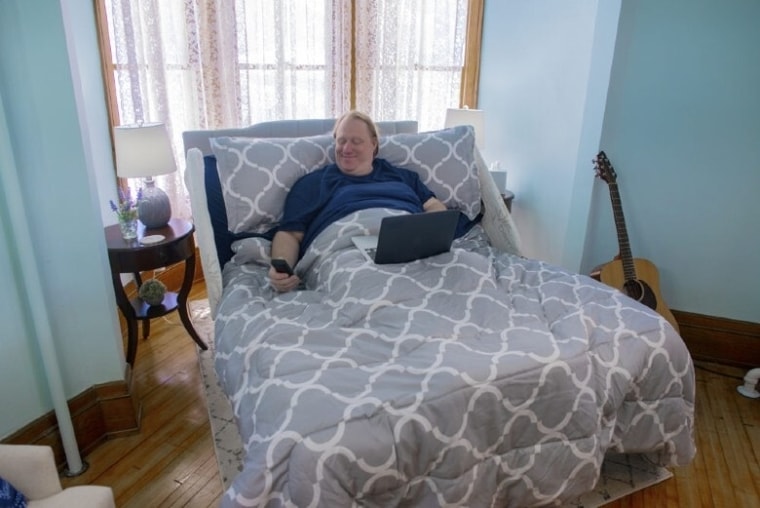What to Do About Being Bedridden and Its Effects On Health
Guest article by Aaron Goldsmith
Being bedridden is the inability to get out of bed or sit up in bed for an extended period of time. Being confined to bed is normally the result of illness or injury. For many, it can be debilitating and lead to serious complications.
While one may need bed rest, one is not meant to stay in bed all the time. Limited or no movement while bedridden invites a range of additional health adversities compounding problems and making life more challenging.
Even caregivers may be uncertain as to how to provide proper treatment to avoid hospitalization or even death. Beyond aggravating back pain, there are more problems elders, in particular, will experience.

Below, are five common problems and tips to help loved ones cope while bedridden long term.
Painful Bedsores
These are ulcers due to pressure on the body, especially near bones. Commonly afflicted areas include the buttocks, heels, shoulder blades, head, and knees. Left untreated, bedsores can become infected and spread, potentially causing more serious problems.
TIP: A Harvard Health article on bedsores [6/3/2025 TCV Update: URL updated to article on Bed Sores A to Z] recommends that caregivers reposition the person every two hours. This will alleviate the pressure that can cause the sores while letting blood flow more to those affected areas.
Poor Circulation and Muscle Weakness
Being bedridden long term often results in poor circulation and muscle weakness. This potentially causes atrophy and blood clots in the legs or lungs known as deep vein thrombosis. Those bedridden may experience pain, discoloration, or unusual warmth.
TIPS: Wear loose-fitting nightwear and try to keep legs elevated above the heart. Discuss options such as using blood thinners or compression stockings with your doctor. A quality pressure-relief mattress specifically designed to relieve and prevent both bedsores and poor circulation can also help immensely.
Depression and Anxiety
If you are bedridden for an extended period of time, chances are you will have trouble sleeping and feel depressed.
TIPS: Read an inspiring book, keep bedtime consistent, and try to get outdoors if possible. Maintain daily hygiene. Have plants nearby. Eat a healthy, balanced diet. Stay in touch with friends on social media. If necessary, take anti-depressants and/or anti-anxiety medications as prescribed by your psychiatrist.
Osteoporosis and Pneumonia
Being bedridden causes mucus and fluids to accumulate in your lungs causing pulmonary congestion and pneumonia. This also means you are at a higher risk for bone disease or osteoporosis. Loss of bone density (and strength) also poses risks, including easier fractures and broken bones.
TIPS: You can combat both of these with a diet rich in calcium, exercise, taking slow deep breaths regularly and abstaining from smoking, caffeine, and excessive salt and alcohol.
Poor Hygiene
While bedridden, it’s harder to do the things we take for granted that make us feel fresh and clean. One cannot use the toilet, shower, or bathe easily, or brush one’s teeth. When hygiene declines it brings more problems such as decaying teeth, infected gums, acne, infections, and fungi. At the extreme, poor hygiene may invite parasites on tender skin leading to even greater risks.
TIPS: Be sure to have help with taking full bed-baths, two to three times a week, rinsing with mouthwash, at least daily, and trim nails as needed.
Ensuring that all of these needs are met when being bedridden will ensure that you are able to live a healthier and more productive life. Strong communication and access to resources are essential in moving forward with a new and enhanced routine. Paying attention to any discomfort, unusual sensations, or body odors will also save you and your designated caregivers trouble by getting additional medical help for your health as needed.

Aaron Goldsmith, owner of Transfer Master, builds electric adjustable hospital beds. In 1993, he started with the goal that hospital beds should allow wheelchair users to transfer independently in and out of bed. Twenty-seven years later, Transfer Master’s customers remain front and center.








